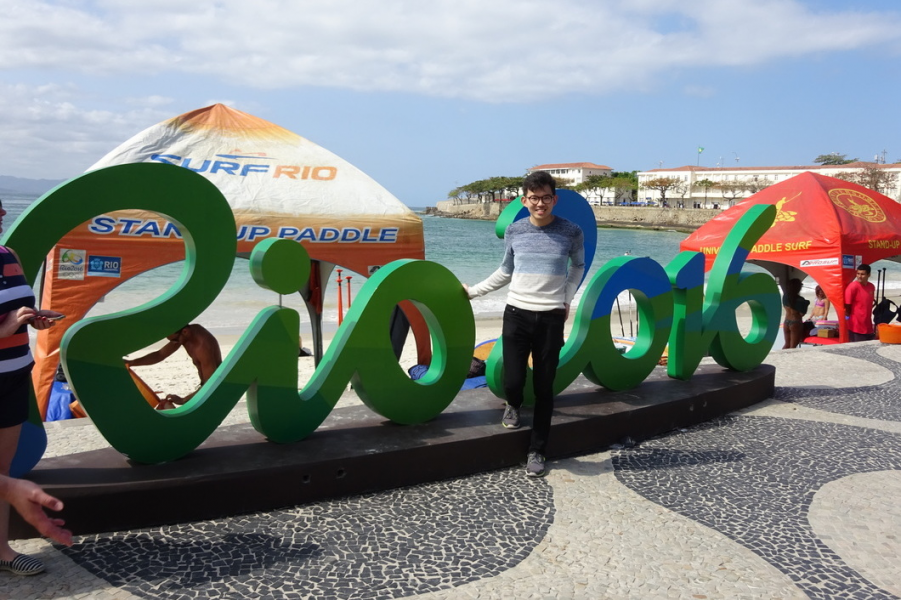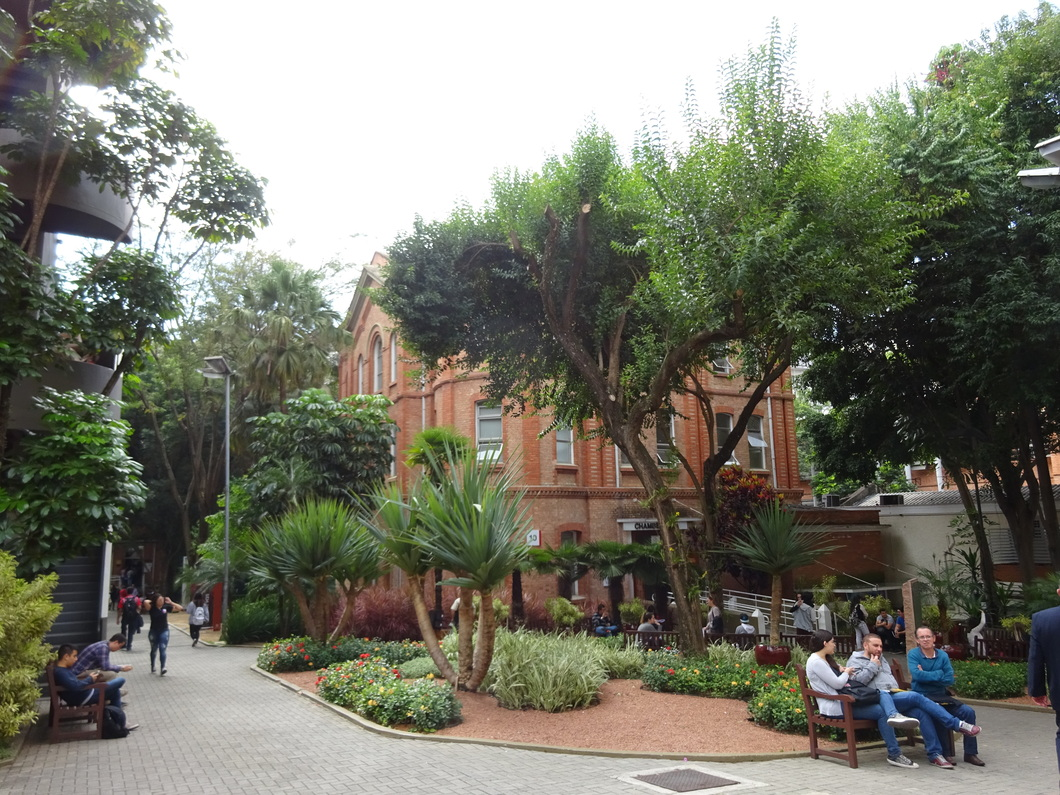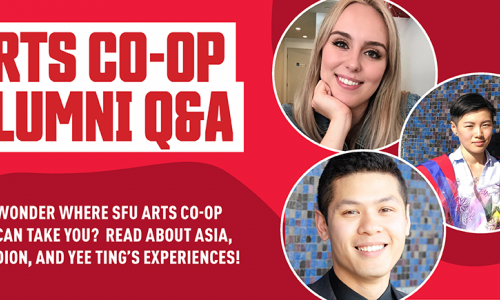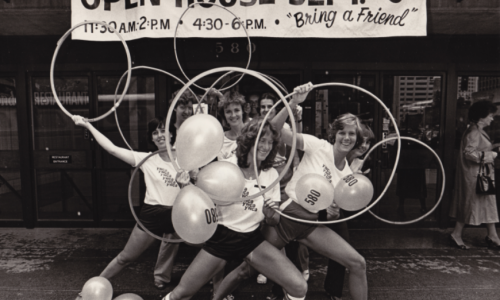
Desculpe, mas eu não falo Português (Sorry, but I do not speak Portuguese)
When I arrived in São Paulo, Brazil, from my first step, I was already overwhelmed and nervous. First, I felt overwhelmed because I hardly travel, even for vacation. I could not keep up with the reality that, all of the sudden, I was in a foreign country for professional duties (to be fair, it wasn’t actually sudden, but the time leading up to my trip had seemed to pass so quickly before my eyes). Second, I felt horrid because I do not speak Portuguese well, and my one-month-online Portuguese crash course had not been enough to communicate with locals on a casual basis. However, this language barrier made me realize something about the Brazilian people: they are very amicable. When I had difficulty trying to speak Portuguese, people were very patient and kept encouraging me. Some even tried to understand me by speaking in English (which is difficult for them, as not many Brazilian speak English).

Around the time I arrived in Brazil, my project supervisor, Professor Moises Ari Zilber, a faculty member in the Business Department at Universidade Presbiteriana Mackenzie, was out of town. So, I used the first two days in São Paulo to familiarize myself. I went to the university to get myself ready, as well as to establish contacts with his colleagues. Universidade Presbiteriana Mackenzie’s international office also helped me learn more about Brazilian culture, what the expectations were of me, and some places I could go and foods I could try.
As the major center for business, São Paulo is marked for being modern yet infused with cultural aspects here and there. There was not a time that I got bored while exploring the city as there are so many things to do and see. For my first meal, I tried feijoada, a black bean soup, a very typical Brazilian side dish, for dinner along with rice and poultry. I actually found Brazilian cuisine and seasoning to my liking and from then on, I had a feeling I would enjoy my time in Brazil.
Getting to Work: Soccer as a Legacy, Pride, and Honour
I met my local supervisor on my third day in Brazil. During our meeting, I reiterated the objective of the project, the expected deliverable, and the methodology and how data would be retrieved. He also used that opportunity to explain his expectations for the project, give ideas and study materials to improve it, and to set me up for an appointment with the first source: Professor Wilson Toshiro Nakamura, his colleague at Universidade Presbiteriana Mackenzie and the Internal Auditing Manager of Sociedade Esportiva Palmeiras, one of the most successful soccer clubs in Brazil.

From there, I got to work. My responsibilities in the project include, but are not limited to: preparing my study outline, studying academic sources to add theory to my project, researching Brazilian soccer clubs through any possible sources, contacting sources who work in soccer clubs to collect data, creating several questionnaires based on each source’s expertise, documenting the results, and using the findings to develop my paper. I had heard that a typical work day in Brazil is from 9 to 5 just like in Canada, but due to the nature of my project, my work hours are similar to taking a course; they are fairly flexible, but at the same time, I have to be prepared to work on weekends or overtime, if needed.
Again, the biggest obstacle for my work is the language barrier. Since working in Brazil, Google translate has become my best friend and it is one of the reasons I could bring this project forward. When I began interviewing club stakeholders, things got more interesting. Since most of the people I have interviewed are not fluent in English, the interviews had to be done in Portuguese. My comprehension skills are fairly decent, even if I cannot fully speak the language but, because of this, the interviews were arranged in a way where my supervisor took the lead speaking in Portuguese and I was able to raise questions anytime I had to. To ensure that I could analyze the interview data on a later date, I asked for permission to record the interviews and save the audio data.
Although the interviews were often intense and challenging, I felt that each interview was also very rewarding. From discussions with each of my sources, I could feel how deeply connected they are to soccer. To better understand this connection, Professor Wilson Nakamura invited me to watch a soccer match with his family. When I was at the stadium, there was an overflow of emotion all around. I could just feel it. For Brazilians, soccer is not just a game; it is a tradition that has deep roots and they are proud to have this tradition in their lives. I shivered hearing all of the chanting and support from the crowds and felt thrilled to be a part of the euphoria. I became so addicted to it that I kept inviting Prof. Nakamura to watch soccer matches every week.

While writing this article, I am in Rio de Janeiro and in contact with two soccer clubs that are based here, Botafogo FR and Flamengo. Rio is a beautiful city and very crowded as it is preparing to host the Summer 2016 Olympics Games. Reflecting on all that has happened, I feel that my experience working in Brazil has been and continues to be very rewarding and useful for my career development plan. Some of the key takeaways from my experiences here include expanding my connections within academia and the management teams of various soccer clubs (Sociedade Esportiva Palmeiras, São Paulo FC, Santos FC, and Botafogo FR), proving a positive trend in technical systems adoptions with each soccer club, which I have documented and will include in my final report, and strengthening my quantitative and qualitative data analysis skills through analyzing all of the gathered data. I anticipate my final report will be useful for future academics to use as a basis for further research.
While I never thought I would find an opportunity that combined my passion for sports, technology and consulting, this co-op term was a reminder that it is okay to dream and to pursue the things you are truly passionate about. Has it been a smooth ride from the beginning of my journey to the finish? No. Have all the challenges and troubles been worth the experience? They have and I would be more than happy to do it all again.
The SFU Co-op office and the OLC acknowledge the recent events that significantly impacted the Brazilian soccer community. Our heartfelt condolences go out to family, friends and fans of Associação Chapecoense de Futebol and all who have been affected by this tragedy.
Beyond the Blog
- Check out Christopher's post he wrote and published on the Mitacs website about his research project in Brazil.
-
Interested in doing an International Co-op? Visit their website to find out more.
















